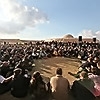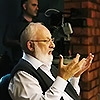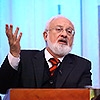Audio Version Of The Blog – 2/16/21
Listen to an Audio Version of the Blog
Download:MP3 Audio

Listen to an Audio Version of the Blog
Download:MP3 Audio
 Question: Man has developed throughout history, and at some point, he had time to think about the meaning of life. The desire to comprehend the hidden forces of nature woke up 3,800 years ago in the inhabitants of ancient Babylon.
Question: Man has developed throughout history, and at some point, he had time to think about the meaning of life. The desire to comprehend the hidden forces of nature woke up 3,800 years ago in the inhabitants of ancient Babylon.
The primary sources say that before that all of humanity was like one family, although we understand that by the time they were written, life had already existed for tens of thousands of years, and people were killing each other. It is not clear what does “like one family” mean?
Answer: The fact is that the friendly relations between the Babylonians were due to a certain historical development. In those days in Mesopotamia, between the Tigris and the Euphrates, external conditions favored a peaceful life. The abundance of water and the flooding of rivers contributed to a good harvest.
People ate fish, garlic, baked barley bread, and raised cows and sheep. Nature was so generous to them that they did not have to win back its fruits from each other. Therefore, they lived in relative balance with each other.
The Torah says that “there was one language and one dialect throughout the whole earth.” This means that people understood each other. It is not about the language. They did not need more than what they had.
On one hand, nature favored them and in return for a little effort on their part, gave them everything. On the other hand, they were not yet so selfish as to take from nature more than necessary. It was a correct, beautiful, natural existence. In Kabbalah, this is called the zero level of egoism.
There was ]complete understanding between the Babylonians, as in a normal family. Then suddenly there was a surge of egoism, and they immediately wanted to divide into classes: the rich, the poor, the strong, and so on. So, all sorts of insignia appeared among them.
[277988]
From KabTV’s “Spiritual States” 5/13/19
Related Material:
The Genetic Map Of Humanity, Part 1
The Decline Of Babylon, Part 3
Short Stories: Abraham’s Rough Path
 Michael Laitman, On Quora: “What is truth?“
Michael Laitman, On Quora: “What is truth?“
Truth is understanding that everything is relative, that we each subjectively perceive good and bad, sweet and bitter, and truth and falseness.
What, then, is absolute in reality? It is that the quality of complete bestowal (the Creator, nature) is our ultimate root, and we, as well as everything we perceive in nature on the still, vegetative and animate levels, are its creation, made of an opposite quality of reception.
There is absoluteness solely in these two poles of reality: the quality of bestowal and the quality of reception. Everything else is relative.
Based on the program “Spiritual States” with Kabbalist Dr. Michael Laitman on April 22, 2019. Written/edited by students of Kabbalist Dr. Michael Laitman.
 Question: The state called “witchcraft and sorcery” comes from above, from the spiritual root. The Creator seems to be playing with us for us to discover a single law that is direct, exact, and scientific. Does He also give us a place of uncertainty to try to find our way?
Question: The state called “witchcraft and sorcery” comes from above, from the spiritual root. The Creator seems to be playing with us for us to discover a single law that is direct, exact, and scientific. Does He also give us a place of uncertainty to try to find our way?
Answer: There is a quality opposite to “witchcraft and sorcery.” It states: “Borrow from Me, and then pay it back.” This is how the Creator appeals to us. This is possible.
That is, I do not need to conjure or fortune-tell, I can simply ask Him: “Give me strength, opportunities, and knowledge so that I can do the right thing to reach the goal, and then I will pay You back. I know that I have no strength, no knowledge or willpower of my own to elevate myself.”
This is not sorcery. You are consciously using His power. Like a small child, you take His hand and ask Him to lead you to the goal. This is natural.
While sorcery and witchcraft is when you try to steal the same power to advance, not in connection with the Creator, but independently. And here, of course, lies a problem. After all, you are given these powers so that you can use them, although not in every case, because here you do not follow the direct law of nature. But then you have to pay it back, which is very difficult. This path is undesirable.
Comment: You’re telling us very complex things. They are not easy to understand.
My Response: We are talking about a person who is advancing and beginning to feel the spiritual world and himself—the Creator on one hand, and one’s egoistic desires on the other hand. A person begins to feel how he should be acting.
And then he has to choose between engaging in “magic” or raising a request. For in a spiritual place these two options are equal; thus, this is where they arise. And, naturally, those who raise a request win. But one still has to pay it back.
Witchcraft makes it seem like I’m going to dive in and achieve my result. While here I have to annul myself before the Creator. This is hard. Therefore, unfortunately, most people lie to themselves and others every moment, and then come to face the reckoning.
[277940]
From KabTV’s “The Power of The Book of Zohar” #4
Related Material:
Do Not Bewitch And Do Not Prophesize
Other Methods of Kabbalah
Sorcery One Will Pay For
 Michael Laitman, On Quora: “Is ‘lazy’ a negative word?“
Michael Laitman, On Quora: “Is ‘lazy’ a negative word?“
Laziness is definitely not a negative word. I myself am the laziest person in the world, constantly struggling to be a little more active. I thus need to raise the importance of what I need to perform.
Nature gave us lazy qualities in order to prevent us from doing several negative actions, i.e., to stop us from ruining the world so that we have the ability to correct the world.
Laziness is thus a very positive phenomenon. If it were up to me, I would add a little bit more laziness to all of us, so that we would barely be able to get out of our beds, shower, dress, eat, and go to work. The reason is that people would do far less negative acts in the world.
It is basically positive to be lazy anytime other than when we invest our energy to positively connect in society, to provide each other with support, encouragement and care, adding to a positive social atmosphere.
I thus wish for us all to be a little lazier, as it is written in the Torah, “Sit and do nothing, better.” It means that if we are lazy, then it is better than if we let ourselves run rampant, because the latter would bring more ruin to the world. Our actions would then be more purpose-driven and done out of necessity.
Written/edited by students of Kabbalist Dr. Michael Laitman.
Photo by Adrian Swancar on Unsplash
 We are all created differently by nature; there is no need to neutralize, erase, or destroy these differences or consider them bad, unnecessary, or completely useless. On the contrary, we should highlight all the differences between us as much as possible and make them more prominent.
We are all created differently by nature; there is no need to neutralize, erase, or destroy these differences or consider them bad, unnecessary, or completely useless. On the contrary, we should highlight all the differences between us as much as possible and make them more prominent.
Where should equality be? In making sure that each person does as much as possible at every moment to benefit the whole society.
Comment: But even here we are not equal. You can do more, I can do less.
My Response: But if I do everything within my power and you do everything within yours, then we are equal relative to our unique abilities. You are made this way, I am made that way. So I do as much as I can, and you do as much as you can. One is smart, the other is strong.
Question: And who can determine this?
Answer: No one can. We must be taught to have a correct understanding of nature. Then we will evaluate a person not according to his contribution to society, because some can do more and others can do less in different quantity and quality, but by how much one applies himself given his specific circumstances.
Comment: Nevertheless, a person should have equal opportunities. You talk about upbringing, but not all are the same.
My Response: That is another matter. We should provide everyone not the same but suitable education and upbringing.
From the point of view of nature, a person must be provided with the optimal opportunities he or she needs for correct development in society so that society receives from the person the maximum one can give for its benefit. This is what equal opportunity means.
Question: And who determines what is good for society?
Answer: Society itself and the educational system. It is all depends on education. It should be such that it compels one to feel the need to do everything one can for society. When, ideally, all members of society feel this way, then we can talk about their equality.
[277752]
From KabTV’s “Spiritual States” 4/29/19
Related Material:
Conditional Equality
How To Build Equal Relations In Society?
Equality And Diversity
 Baal HaSulam, Shamati 34, “The Advantage of the Land“: What should one do in order to come to love the Creator? For this purpose, we are given the remedy of engaging in Torah and Mitzvot [commandments], for the light in it reforms him.
Baal HaSulam, Shamati 34, “The Advantage of the Land“: What should one do in order to come to love the Creator? For this purpose, we are given the remedy of engaging in Torah and Mitzvot [commandments], for the light in it reforms him.
We need to attain the state in which we will permanently feel the Creator. The permanent revelation of the Creator ensures that we will be in eternity, in wholeness, in pleasure, in filling and attainment. The only thing we need to do is to attain the revelation of the Creator.
There is light there which lets him feel the severity of the state of separation. Bit by bit, as one aims to acquire the light of Torah, hatred for separation is created in him. He begins to feel the reason that causes him and his soul to be separated and far from the Creator.
A person feels very sharp and accurate sensations of getting closer to the Creator or further away from Him, but he does not know how to coordinate them with his development. But this is not a bad thing since nothing disappears. We do not disappear, and we do not go anywhere, not from this life or death.
All we need to do is to ascend to the next level, in which we will float in constant energy and general love.
[258517]
From KabTV’s “Fundamentals of Kabbalah” 12/22/19
Related Material:
Aspire To Sense The Creator
Faith: A Reward For Work
Difficulties Are An Invitation For Revelation
Preparation to the Lesson
| [media 1] | [media 2] |
Lesson on the Topic of “Envy”
| [media 3] | [media 4] |
Selected Highlights
| [media 5] | [media 6] |